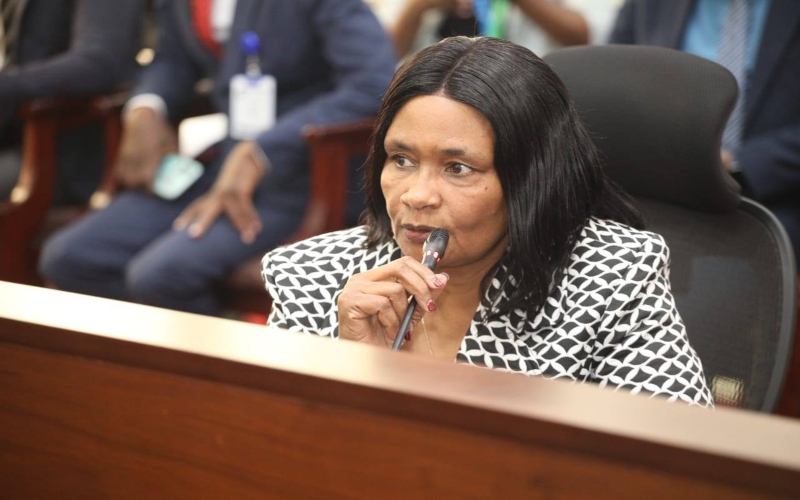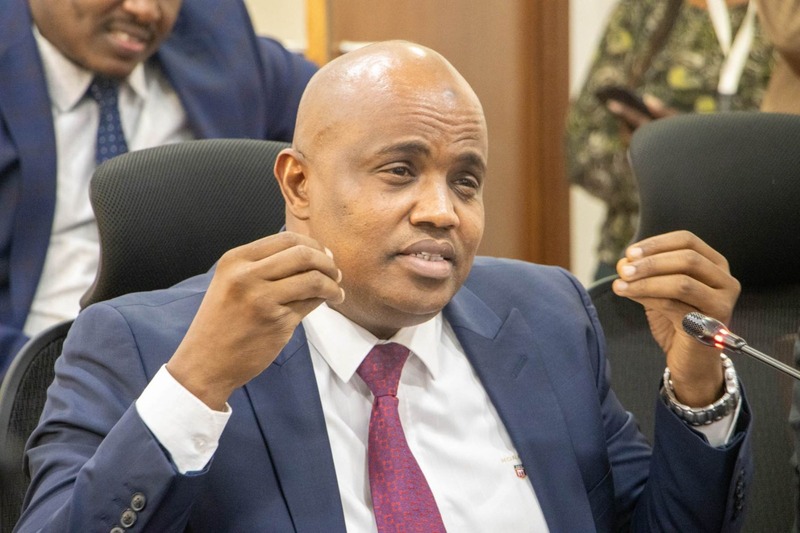DPP urges fast-tracking of traffic reforms amid rise in road offences nationwide

Discussions centred on several key reform areas, including improving coordination in managing traffic-related offences under the Traffic Act (Cap 403), evaluating the implementation of NTSA’s instant traffic fines, and assessing their legal and operational implications on prosecution.
The Director of Public Prosecutions, Renson Ingonga, has called for the fast-tracking of traffic reforms, warning that rising road offences across the country demand urgent action and stronger coordination among justice sector agencies to ensure fair and efficient prosecution.
Speaking at the Office of the Director of Public Prosecutions (ODPP) headquarters on Thursday, Ingonga addressed the National Council on the Administration of Justice (NCAJ) Working Committee on Traffic Reforms, a specialised sub-committee tasked with reviewing traffic enforcement frameworks, strengthening institutional collaboration, and promoting public awareness on road safety.
More To Read
- Kibra MP Peter Orero's driver fined Sh100,000 for flouting traffic rules in viral video
- Lobby group accuses DPP of shielding graft suspects, warns economy is on brink
- High Court declares Small Claims decisions rendered after 60 days as null and void
- 1,000 alcoblows to be deployed in new anti-drunk driving crackdown - CS Chirchir
- State moves to phase out static roadblocks to curb graft, enhance traffic flow
- DPP Ingonga reveals reasons for delays in prosecuting protest deaths
The Committee comprises representatives from the Judiciary, ODPP, NTSA, National Police Service, Law Society of Kenya, Kenya Law Reform Commission, Council of Governors, Directorate of Children Services, Nairobi Metropolitan Area Transport Authority, Kenya Association of Manufacturers, Motorists Association of Kenya, and the Ministry of Transport.
The committee is reviewing the proposed Guidelines on Efficient Handling of Traffic Cases, aimed at harmonising institutional practices and promoting consistency in the management of traffic cases. Members are tasked with deliberating strategies to enhance public education on traffic laws, road safety, and the responsibilities of motorists and pedestrians.
Ingonga emphasised the need for strengthened collaboration among justice sector agencies to promote road safety and enhance the efficiency of the justice system in handling traffic-related cases.
He underscored the critical role of the ODPP in ensuring effective prosecution of traffic offences, providing legal guidance to investigators, and promoting uniform charging decisions nationwide. The DPP underscored the need for an integrated and well-coordinated approach among institutions such as the Judiciary, NTSA, and National Police Service to foster accountability and fairness in traffic justice.
“The ODPP remains committed to working with all stakeholders under the NCAJ framework to streamline traffic case management and promote safer roads. We must expedite these reforms to ensure a more efficient, transparent, and accountable system that protects the lives of road users and upholds the rule of law,” he said.
The meeting provided a platform to review existing frameworks governing traffic enforcement and explore practical ways to strengthen institutional collaboration. Discussions centred on several key reform areas, including improving coordination in managing traffic-related offences under the Traffic Act (Cap 403), evaluating the implementation of NTSA’s instant traffic fines, and assessing their legal and operational implications on prosecution.
Highlighting the ODPP’s commitment to innovation, Ingonga noted that under the ODPP Strategic Plan 2023–2027, the office is pursuing a comprehensive digital transformation agenda, which includes automating case tracking, streamlining decision-to-charge processes, and integrating operations with NTSA and Judiciary systems through platforms such as the e-Court Traffic Module.
Top Stories Today













































